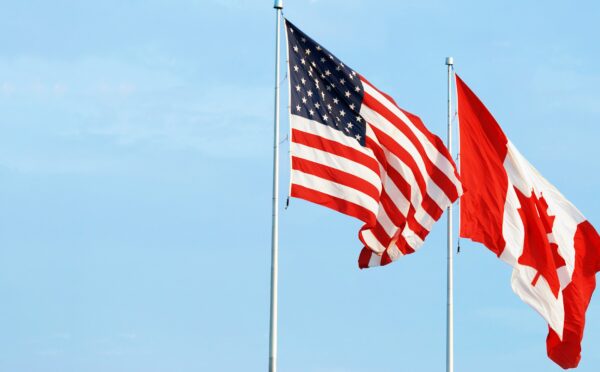Authors
Partner, Tax, Toronto
Associate, Tax, Toronto
Associate, Tax, Toronto
On November 21, 2024, the Department of Finance announced that the government will be introducing legislation in Parliament to amend the Excise Tax Act (Canada) (the announcement) to provide for a two-month break from the application of Goods and Services Tax/Harmonized Sales Tax (GST/HST) for most food items and certain “holiday essentials” (the GST/HST holiday). Draft legislation was introduced to Parliament on November 27, 2024 (the draft legislation), and is currently in the process of being enacted (as of December 9 it is currently in third reading at the Senate, having already passed the House of Commons). The draft legislation provides that this GST/HST holiday would apply to sales of qualifying goods from December 14, 2024, to February 15, 2025. The removal of GST/HST from qualifying goods applies to both GST and the full amount of HST in those provinces that have harmonized their taxes with the GST (Ontario, Newfoundland and Labrador, Nova Scotia, New Brunswick and Prince Edward Island). Provinces that impose their own sales tax (British Columbia, Québec, Manitoba and Saskatchewan) have not announced any similar changes at this time, so these taxes are not currently affected.
The draft legislation implements the GST/HST holiday by temporarily zero-rating the GST/HST on qualifying goods that the purchaser takes delivery of and pays for during the GST/HST holiday, or which are imported during the GST/HST holiday.
Qualifying goods for purposes of the GST/HST holiday will include almost all food products (including food purchased at restaurants), certain children’s items, print newspapers, printed books (and certain audiobooks), many alcoholic beverages (excluding spirits but including most wine, sake, beer, ciders and spirit coolers up to 7% ABV), Christmas trees or similar decorative trees, certain games and toys designed for children under the age of 14, video game consoles and physical game media, amongst other goods.
Implications for retailers
With this proposed GST/HST holiday, it seems that Santa may be coming 10 days early for consumers. However, for retailers, this GST/HST holiday may be a much less welcome change during an already busy holiday sales season.
The announcement did not include the accompanying draft implementing legislation for almost a week, leaving retailers with only 17 days to prepare for the date the GST/HST holiday is intended to take effect. The Government of Canada seemed to expect that retailers would assume that the legislation would ultimately pass (which seems likely at this point) and that retailers would be able to update their point-of-sale systems to adjust for the GST/HST holiday within less than three weeks.
Overhauling retailers’ point-of-sale systems to exempt qualifying goods from GST/HST is a major undertaking, and implementing the significant changes to point-of-sale systems for the GST/HST holiday with less than three weeks’ notice of the draft legislation which lists the specific items that are zero-rated has already been a major challenge for retailers. It requires changes to thousands of different product codes to ensure that retailers’ point-of-sale systems do not charge GST/HST on qualifying goods during the GST/HST holiday. Retailers also need to consider carefully which products are included as qualifying goods in order to avoid accidentally exempting items in their point-of-sale systems that are not subject to the GST/HST holiday. This requires significant labour at a time of year when retailers are already stretched for labour as they prepare for the holiday shopping season. Retailers may also be hesitant to undertake an overhaul of their point-of-sale systems at this time as they cannot afford to have their systems experience an accident or crash at one of the busiest times of the year.
Adding to these challenges, we also understand that at least some companies which provide point-of-sale software may not be able to update their systems ahead of December 14, 2024, to account for the GST/HST holiday, leaving retailers who rely on such software in a difficult position. This is especially the case as we understand that some of these companies will not make changes to their systems until the legislation is enacted, which, while it currently appears likely to happen prior to December 14, 2024, is not certain to happen prior to that date.
With the release of the draft legislation, retailers can review the list of qualifying goods to begin the process of determining which of their products may be affected. However, retailers bear some risk that they could be assessed for failing to charge GST/HST, plus interest and penalties, if the legislation is not ultimately passed in its current form. Even once the legislation is passed, retailers will still bear such risk for the categories where it is unclear whether a particular product meets the conditions (e.g., whether a board game or card game is intended for use by children under 14 years of age). This is even more difficult for products such as packages or baskets that contain multiple items (e.g., a basket with both food, which will be zero-rated under the GST/HST holiday, and taxable items such as mugs) where retailers will have to determine whether the basket/package is predominantly the taxable item or the zero-rated item. As the GST/HST holiday is set to take effect soon, retailers do not have much time to figure out what items are covered and make the applicable changes to their systems.
Retailers are also left to navigate a draft legislation that seems to make policy choices and exemptions, the logic of which is not obvious. As an example, the draft legislation specifically includes sake as an alcoholic beverage that is included in the GST/HST holiday. However, other types of rice wine, such as makgeolli (Korean rice wine), are not specifically included in the list of alcoholic beverages to which the GST/HST holiday applies and would normally not be considered “sake”. It is not clear if these distinctions were intended or were merely a result of trying to draft and implement new legislation in an incredibly short period of time.
The CRA has recently released some guidance on the goods that qualify for the GST/HST holiday. Unfortunately, there remains some uncertainty about how the guidance should be interpreted, and whether it is entirely accurate. For instance, the CRA indicates that “collectible dolls” would not qualify for the GST/HST holiday, presumably on the basis that a consumer is acquiring the doll for collectible purposes. However, the draft legislation provides that a doll need only be designed for use by a child under 14 years of age in learning or play, and provides no exclusion for a doll designed for someone under 14 that happens to be “collectible”.
Takeaways
It will also be interesting to see the effect of the announcement on how consumers spend over the holiday season. The announcement, made the day before many Black Friday sales began, may have caused consumers to delay purchases of qualifying goods until December 14 when the GST/HST holiday begins. The release of the announcement and draft legislation could also incentivize consumers who have already made purchases of goods that are listed as qualifying goods to return these items and repurchase them once the GST/HST holiday begins, putting further pressure on retailers at an extremely busy time of year.
Ultimately, retailers will have to balance the benefit of getting extra sales from the two-month GST/HST holiday against the risks of potentially losing business to rivals who do implement the changes, plus the time and cost of implementing the changes to their systems — particularly given the short two-month period that the GST/HST holiday will be in effect before retailers have to revert their point-of-sale systems to again compute GST/HST on the qualifying goods.
While this may be a gift for consumers, unfortunately the short time frame to implement the GST/HST holiday and the cost to make the changes (only to have to change everything back two months later) will leave retailers with a lump of coal in their stockings.


